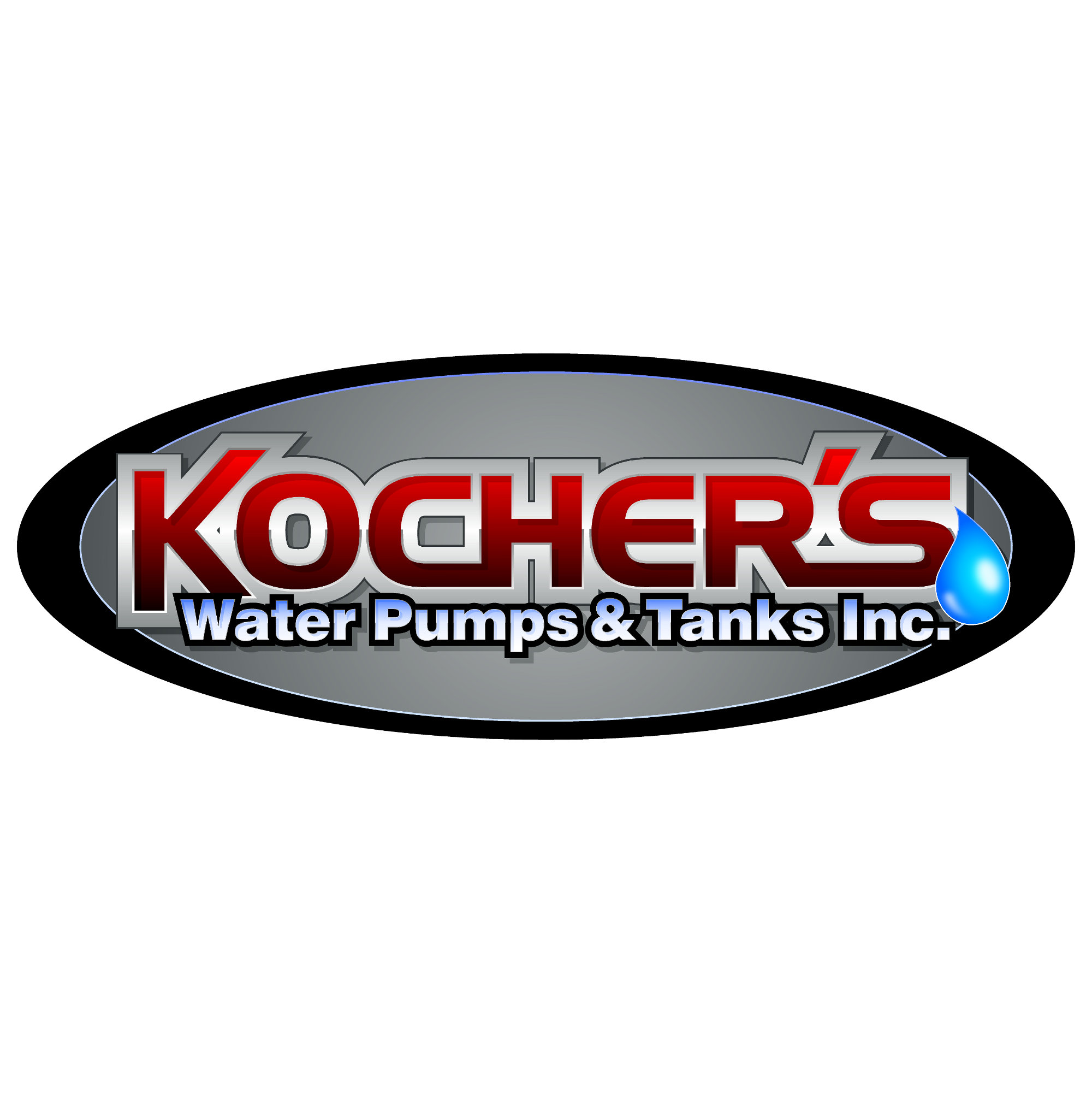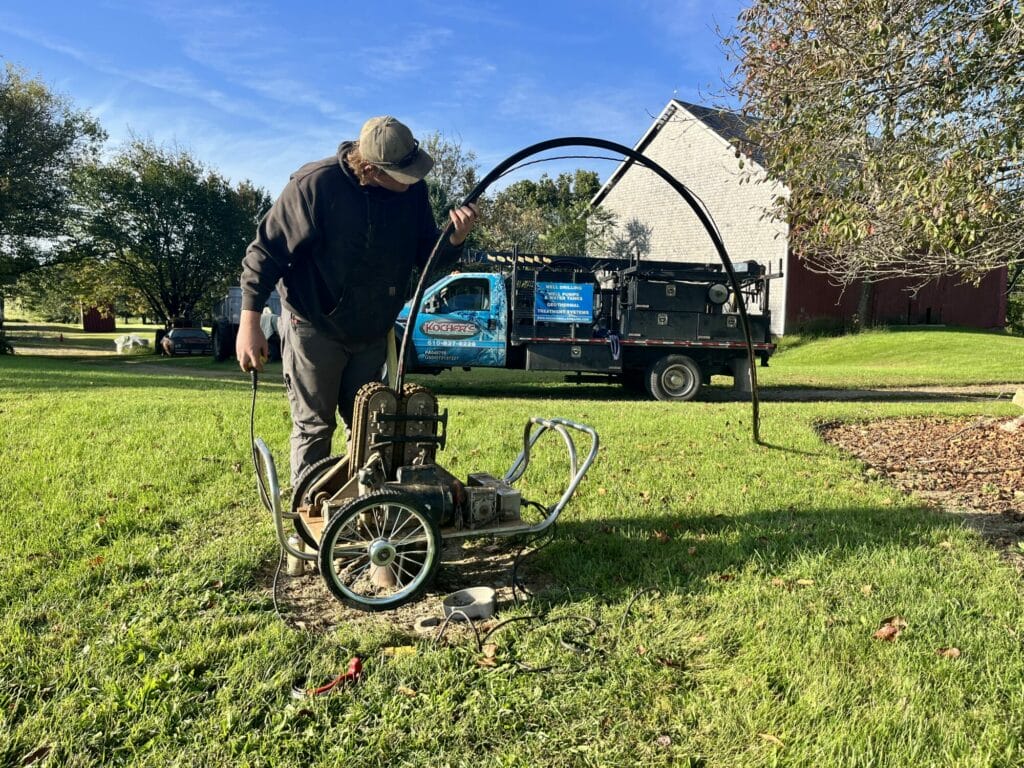The Importance of Well Water Testing in Lehigh Valley
As a well owner in Lehigh Valley, PA, recognizing the risks associated with bacteria in well water is vital. Regular testing is essential for ensuring the safety and quality of your water supply.
- Why Testing is Crucial
- Detects invisible threats like E. coli and coliform bacteria.
- It helps prevent health risks ranging from minor discomfort to severe illnesses.
- Frequency of Testing: Annual testing is recommended to maintain water safety.
Regular testing not only uncovers invisible threats such as E. coli and coliform bacteria but also aids in averting health risks ranging from minor gastrointestinal discomfort to more severe illnesses, depending on the bacteria type and concentration.
What Are the Common Types of Bacteria Found in Well Water?
When examining well water, we primarily encounter two groups of bacteria, each with distinct implications:
- Coliform Bacteria: These bacteria are critical indicators that flag possible contamination of water sources. Their detection often warns of potential infiltration by additional pathogens that could harm human health. They act as a bellwether for the overall safety and integrity of the water supply.
- Non-Coliform Bactera: Although these bacteria are generally not a health hazard, their presence can significantly deteriorate the sensory qualities of water. They are often the culprits behind undesirable odors, off-putting tastes, and visible staining, contributing to decreased water quality and usability.
Causes of Bacterial Contamination in Wells
The quality of well water can be influenced by various environmental and structural factors, such as:
- Surface Water Infiltration: This occurs when a well is not sealed correctly, allowing surface water, which may contain contaminants and pollutants, to seep into the well and mix with the groundwater.
- Nearby Septic Systems: Malfunctioning septic systems located in proximity to a well can be a source of contamination, as they can leach harmful bacteria and chemicals into the soil, potentially reaching the well water.
Additionally, the impact of weather plays a significant role:
- Weather-Related Risks: In areas like Lehigh Valley, the occurrence of floods and heavy rains can dramatically increase the risk of well water contamination as these conditions can overwhelm systems designed to protect water quality, leading to the potential infiltration of pollutants.
Treatment and Prevention Strategies
Ensuring the safety of well water hinges on a dual approach that incorporates both preventive strategies and responsive treatment methods:
- Preventive Measures: The foundation of well water safety is built on proactive steps, such as:
- Conducting regular testing to identify any signs of bacterial presence or contamination at the earliest possible stage.
- Adhering to stringent well construction standards and performing diligent maintenance includes verifying that the well is properly sealed and situated safely from known potential contamination sources.
- Effective Treatment Methods: Engaging reliable purification techniques becomes imperative when contaminants are present. These include:
- UV light systems can neutralize harmful microorganisms without altering the water’s taste.
- Implementing chlorination and other water purification methods designed to eradicate bacteria and ensure the water is safe for consumption.
The emphasis on regular testing is crucial for the early detection of coliform and other bacteria. Ensuring that wells are built and maintained to the highest standards mitigates contamination risks. When pollutants have breached the well’s defenses, deploying treatments such as UV light systems or chlorination is vital to restore water quality and protect public health.
Understanding Testing Results and Next Steps
To ensure the safety of well water, comprehending test results and knowing the appropriate steps to take are essential:
- Understanding Lab Reports: Deciphering lab reports is critical for well owners. It is essential to understand the implications of the presence of different bacteria and what they reveal about the water’s condition.
- Seeking Professional Advice: Should test results indicate contamination, it is prudent to consult with local water treatment specialists. These experts can offer advice and solutions specifically tailored to address the unique issues of your well in Lehigh Valley.
For additional support, Lehigh Valley provides a wealth of community resources:
- Local Support and Education: Residents can access dependable water testing services instrumental in monitoring water quality. Moreover, the community offers various workshops and educational programs dedicated to well upkeep and water safety, equipping well owners with the knowledge to protect their water supply effectively.
In essence, local testing services in Lehigh Valley ensure accurate detection of water quality issues. At the same time, educational initiatives empower well owners with the knowledge for effective well management and safety protocols.
Final Thoughts
In Lehigh Valley, PA, the purity of well water is not just a matter of convenience but a critical aspect of healthy living. As a responsible homeowner, understanding and addressing the challenges posed by bacteria in well water is essential. This journey towards ensuring a safe and reliable water supply is continuous but manageable with the right approach and resources.
In Summary: Essential Actions for Well Water Safety
- Commit to Regular Testing: Annual tests to detect bacteria like E. coli and coliform.
- Stay Informed About Bacteria Types: Recognize the signs and implications of coliform and non-coliform bacteria.
- Understand Contamination Sources: Be aware of environmental and structural factors leading to contamination.
- Implement Proactive Treatment Strategies: Utilize UV light systems and chlorination for purification.
- Engage with Local Experts: Consult with professionals for customized water treatment solutions.
- Utilize Community Resources: Take advantage of local testing services and educational programs.
By embracing these practices, you can play a pivotal role in maintaining the health and safety of your family. Remember, the quality of your well water directly impacts your daily life and well-being.
Partner with Kocher’s for Your Water Safety Needs
Are you ready to take the next step in ensuring the safety of your well water? Kocher’s Water Pumps & Tanks Inc. is your trusted partner in this endeavor. With their expertise in well drilling and maintenance, Kocher’s offers a comprehensive range of services tailored to the unique needs of Lehigh Valley residents. Whether it’s regular water testing, treatment solutions, or professional advice, Kocher’s is committed to providing top-notch service to ensure your water is as pure and safe as possible.
Don’t wait until it’s too late. Visit Kocher’s Water Pumps & Tanks Inc. today and take a proactive step towards securing the health and safety of your well water. Your peace of mind is just a click away!




